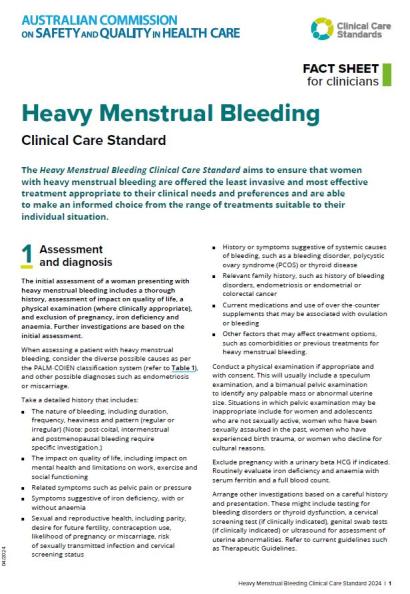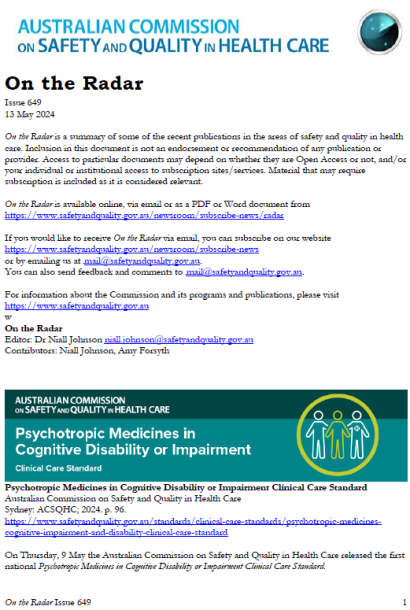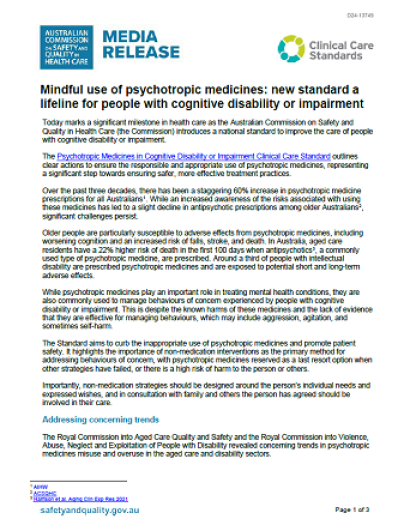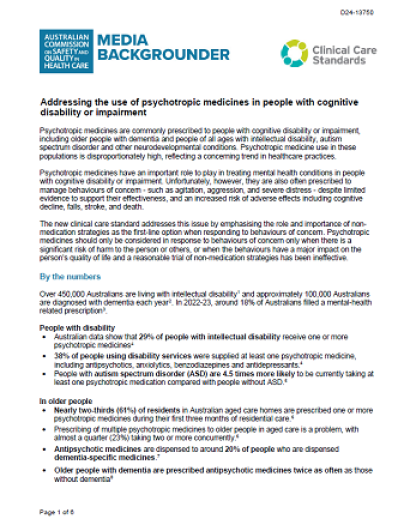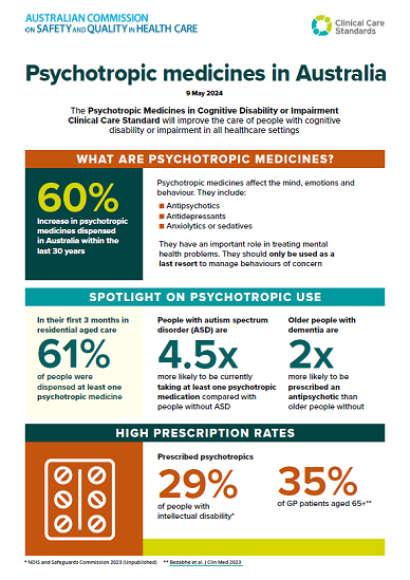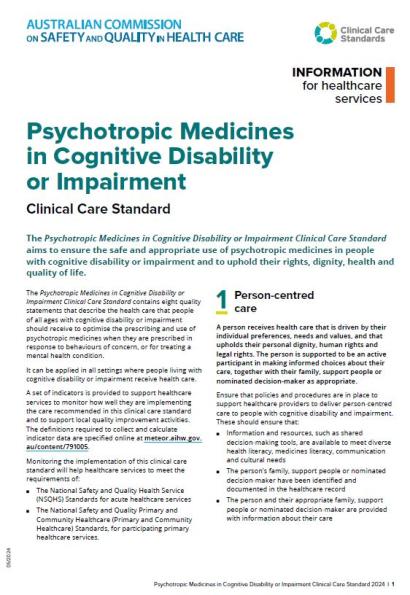This resource accompanies the Heavy Menstrual Bleeding Clinical Care Standard. It describes what the quality statements mean for clinicians and provides indicators to support local quality improvement activity.
This issue includes items on the new Psychotropic Medicines in Cognitive Disability or Impairment Clinical Care Standard, digital technology, remote or telehealth, nursing care, end of life care, patient perspectives, COVID-19, and more.
Also covered are the latest from BMJ Quality & Safety, Journal for Healthcare Quality (JHQ), Health Affairs, Health Affairs Scholar and International Journal for Quality in Health Care along with the latest from the UK’s NICE and the USA’s AHRQ.
The National Safety and Quality Cosmetic Surgery Standards were partially informed by a rapid review of current literature on patient safety and quality risks for cosmetic surgery, tools, strategies and techniques to address these risks, and the effectiveness of these methods.
Bronte Parkin is a devoted husband turned dementia advocate. His wife, Glenda, a respected educator, was diagnosed with dementia at the age of 56. Their lives took an unforeseen turn as together they navigated the complexities of her illness until her death at the age of 69.
Today marks a significant milestone in health care as the Australian Commission on Safety and Quality in Health Care (the Commission) introduces a national standard to improve the care of people with cognitive disability or impairment.
Released 9 May 2024
MEDIA RELEASE
Today marks a significant milestone in health care as the Australian Commission on Safety and Quality in Health Care (the Commission) introduces a national standard to improve the care of people with cognitive disability or impairment.
The Commission is seeking your feedback on the draft Aged Care Infection Prevention and Control (IPC) Guide.
Psychotropic medicines are commonly prescribed to people with cognitive disability or impairment, including older people with dementia and people of all ages with intellectual disability, autism spectrum disorder and other neurodevelopmental conditions. Psychotropic medicine use in these populations is disproportionately high, reflecting a concerning trend in healthcare practices.
-
This resource accompanies the Psychotropic Medicines in Cognitive Disability or Impairment Clinical Care Standard. It describes what the quality statements mean for healthcare services and provides indicators to support local quality improvement activity.

